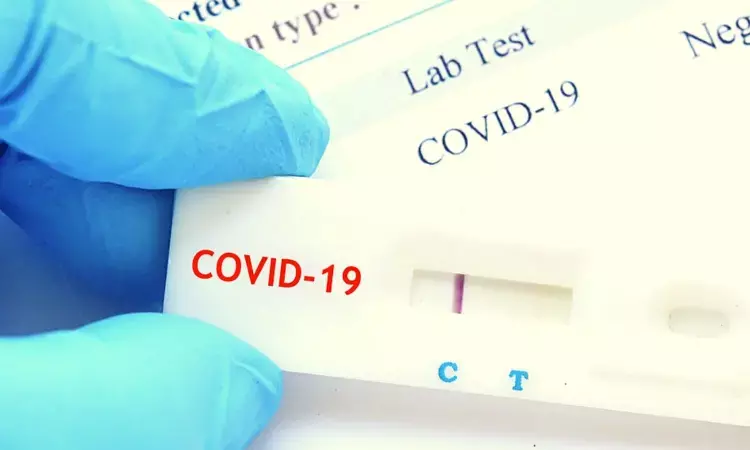- Home
- Medical news & Guidelines
- Anesthesiology
- Cardiology and CTVS
- Critical Care
- Dentistry
- Dermatology
- Diabetes and Endocrinology
- ENT
- Gastroenterology
- Medicine
- Nephrology
- Neurology
- Obstretics-Gynaecology
- Oncology
- Ophthalmology
- Orthopaedics
- Pediatrics-Neonatology
- Psychiatry
- Pulmonology
- Radiology
- Surgery
- Urology
- Laboratory Medicine
- Diet
- Nursing
- Paramedical
- Physiotherapy
- Health news
- Fact Check
- Bone Health Fact Check
- Brain Health Fact Check
- Cancer Related Fact Check
- Child Care Fact Check
- Dental and oral health fact check
- Diabetes and metabolic health fact check
- Diet and Nutrition Fact Check
- Eye and ENT Care Fact Check
- Fitness fact check
- Gut health fact check
- Heart health fact check
- Kidney health fact check
- Medical education fact check
- Men's health fact check
- Respiratory fact check
- Skin and hair care fact check
- Vaccine and Immunization fact check
- Women's health fact check
- AYUSH
- State News
- Andaman and Nicobar Islands
- Andhra Pradesh
- Arunachal Pradesh
- Assam
- Bihar
- Chandigarh
- Chattisgarh
- Dadra and Nagar Haveli
- Daman and Diu
- Delhi
- Goa
- Gujarat
- Haryana
- Himachal Pradesh
- Jammu & Kashmir
- Jharkhand
- Karnataka
- Kerala
- Ladakh
- Lakshadweep
- Madhya Pradesh
- Maharashtra
- Manipur
- Meghalaya
- Mizoram
- Nagaland
- Odisha
- Puducherry
- Punjab
- Rajasthan
- Sikkim
- Tamil Nadu
- Telangana
- Tripura
- Uttar Pradesh
- Uttrakhand
- West Bengal
- Medical Education
- Industry
Sensitivity of Home testing of COVID-19 moderate compared to RTPCR but high compared to viral culture: JAMA

California: In a new study published in the Journal of American Medical Association based on home antigen testing, the sensitivity for SARS-CoV-2 was moderate when compared to RT-PCR and high when compared to viral culture.
As self-collected home antigen testing becomes more commonly available, a greater knowledge of how they operate during SARS-CoV-2 infection is required. As a result, Victoria T. Chu and colleagues undertook this study to compare the diagnostic performance of home antigen testing with reverse transcription–polymerase chain reaction (RT-PCR) and viral culture in terms of days from disease start, as well as user acceptance.
From January to May 2021, this prospective cohort research was undertaken in the Denver metropolitan area, Colorado. Adults and children with RT-PCR–confirmed infection who performed self-collected home antigen testing for 15 days and received viral culture, at least 1 nasopharyngeal swab for RT-PCR, and sequencing were included in the convenience sample. Participants infected with SARS-CoV-2 were considered for this investigation. The key outcome was the sensitivity of home antigen testing to detect RT-PCR–confirmed patients on a daily basis. Secondary outcomes were the daily proportion of positive antigen test, RT-PCR, and viral culture findings, as well as antigen test sensitivity vs same-day RT-PCR and cultures. A group of participants' antigen test usage mistakes and acceptability were evaluated.
The key findings of this study were as follow:
1. In this study, 225 people with RT-PCR-confirmed infection participated in 3044 antigen testing and 642 nasopharyngeal swabs.
2. During the infectious period, antigen test sensitivity was 50%, 64% compared to same-day RT-PCR, and 84% compared to same-day cultures.
3. Antigen test sensitivity rose at 77% four days following disease start.
4. A second antigen test 1 to 2 days later enhanced antigen test sensitivity, especially early in the illness.
5. Antigen test result was 61% six days after disease started.
6. Almost all (216 [96%]) of those polled said they would be more inclined to get tested for SARS-CoV-2 infection if home antigen testing were accessible without a prescription.
In conclusion, these findings imply that symptomatic persons with a negative first home antigen analysis results should retest 1 to 2 days later.
Reference:
Chu VT, Schwartz NG, Donnelly MAP, et al. Comparison of Home Antigen Testing With RT-PCR and Viral Culture During the Course of SARS-CoV-2 Infection. JAMA Intern Med. Published online April 29, 2022. doi:10.1001/jamainternmed.2022.1827
Medical Dialogues consists of a team of passionate medical/scientific writers, led by doctors and healthcare researchers. Our team efforts to bring you updated and timely news about the important happenings of the medical and healthcare sector. Our editorial team can be reached at editorial@medicaldialogues.in.
Dr Kamal Kant Kohli-MBBS, DTCD- a chest specialist with more than 30 years of practice and a flair for writing clinical articles, Dr Kamal Kant Kohli joined Medical Dialogues as a Chief Editor of Medical News. Besides writing articles, as an editor, he proofreads and verifies all the medical content published on Medical Dialogues including those coming from journals, studies,medical conferences,guidelines etc. Email: drkohli@medicaldialogues.in. Contact no. 011-43720751


